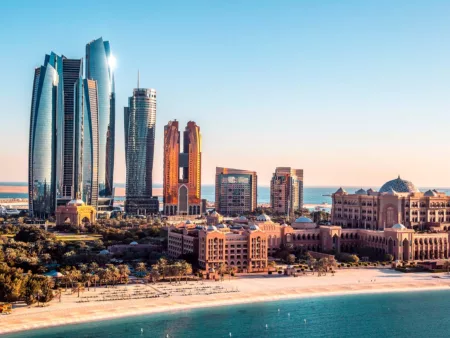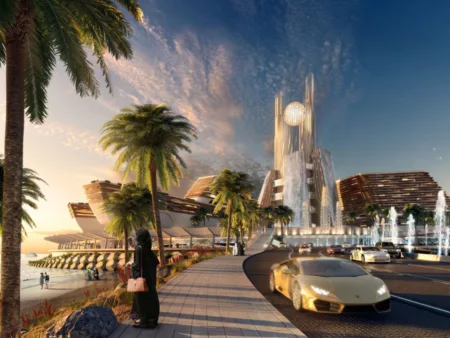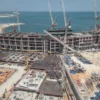In a surprise move, Caesars Palace Dubai announced on September 13 that it would shutter its operations on Dubai’s Bluewaters Island by November 2023, paving the way for Banyan Tree Resort to take its place.
This development occurs just as the United Arab Emirates (UAE) begins to draft new gaming laws, aiming to transform the nation into a competitive gaming destination. Earlier this year, the UAE initiated the General Commercial Gaming Regulatory Authority (GCGRA) to oversee the gaming industry’s framework and licensing.
The departure of Caesars Palace—a global casino brand synonymous with gaming—casts a shadow over Dubai’s aspirations to become a gaming hub. Caesars Palace Dubai, operational since 2018, has had a less-than-stellar run, failing to draw in customers at anticipated levels. While some experts cite the absence of legal gaming as a contributing factor, others wonder if Caesars’ decision to exit stems from skepticism regarding the UAE’s commitment to creating a favorable environment for casinos.
Tourism and Economic Implications
Dubai, already a tourist magnet, is at the cusp of bolstering its allure with legalized gaming. As nations like Macau and Las Vegas capitalize on their gaming sectors, the UAE’s movement towards gaming legalization is considered a logical step in diversifying its tourism industry. Industry analysts believe that casinos could significantly boost tourism, create job opportunities, and attract foreign investment.
According to a report by KPMG, the legalization of gaming could generate up to AED 50 billion ($13.6 billion) in annual revenue for the UAE. The report also estimates that casinos could create over 100,000 new jobs in the country.
Regulatory Challenges and Social Risks
As the GCGRA remains in the infancy stage of formulating regulations, uncertainty prevails over when the body will start issuing gaming licenses. The potential legalization of gaming comes with its own set of societal and ethical dilemmas. Concerns about increased rates of gambling addiction and related social issues are points of contention that could slow down the legal process.
“The UAE has a unique socio-cultural landscape that the government must consider when contemplating the legalization of gaming. The pros and cons need to be weighted carefully,” said Dr. Saeed Al-Maktoum, a social scientist based in Dubai.
The Path Forward
As Banyan Tree prepares to establish its presence, Dubai finds itself at a crossroads. The emirate must fast-track its decision-making concerning gaming laws to keep pace with international competitors while cautiously navigating the potential social ramifications.
The UAE government can learn from the experiences of other gaming destinations, such as Singapore and Macau, which have successfully implemented gaming regulations while mitigating the social risks. The government should also engage with stakeholders, including religious leaders and community groups, to ensure that the gaming industry is developed in a responsible and sustainable manner.
As Caesars Palace exits the Dubai scene, it leaves behind a landscape of opportunity and challenges that could shape the UAE’s tourism industry for years to come. Whether the government can balance economic allure with social responsibility remains to be seen.
Recommendations for the UAE Government
- Establish a clear timeline for developing and implementing gaming laws.
- Consult with experts from other gaming destinations to learn from their experiences.
- Engage with stakeholders, including religious leaders and community groups, to ensure that the gaming industry is developed in a responsible and sustainable manner.
- Establish a strong regulatory framework to mitigate the social risks associated with gaming.
- Invest in education and awareness programs to promote responsible gambling behavior.








